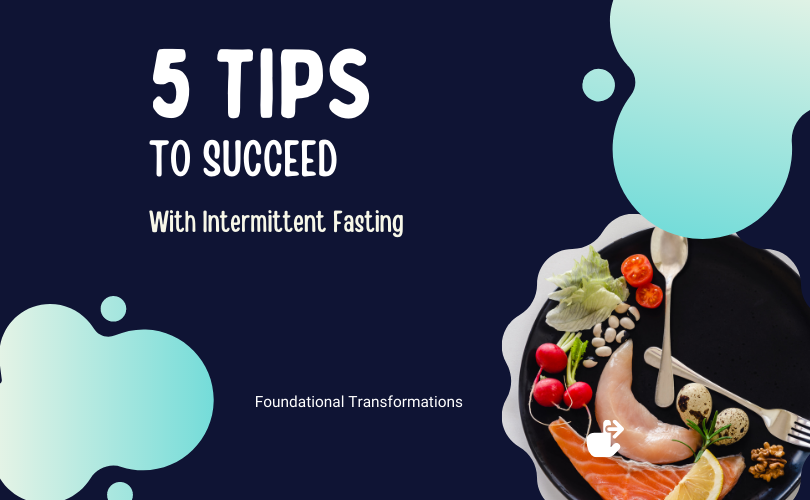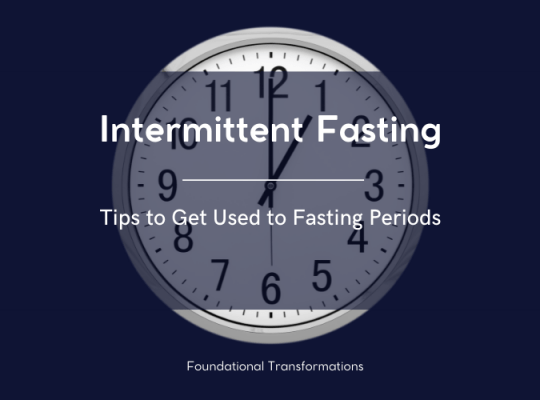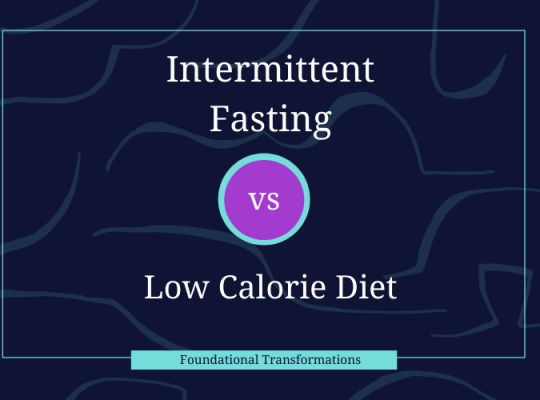Intermittent fasting is one of the few “fad” diets which has shown to have amazing results for those who are able to stick with it. But sticking to a diet of any sort can be difficult. Below are five tips to help you get started with intermittent fasting and succeed with your diet and health goals.
Tip 1: Find The Method You Can Stick To
There are a number of different types of intermittent fasting. What works for someone else may not work for you. The most popular form is known as 16/8. This is where you fast for sixteen hours a day and keep all your eating within the other 8 hours. This one is the most popular because not only does it lead to results, but people find it the easiest to adhere to because they can often still have two meals each day during the eight-hour period.
There second most popular method is the 5/2 plan. You eat five days a week and fast for two full days. There is also a method where you fast for 24 full hours for a certain number of days a month. Although these both also return results, they can be difficult to maintain. Make sure whatever method you pick is one that works for your lifestyle and that you think you can continue with for the long term.
Tip 2: Drink Lots Of Water
Fasting hours mean no food, but this doesn’t mean any water! People sometimes forget to drink when they aren’t eating, so make it a habit to try and drink lots of water during your fasting hours. Black tea or black coffee are also okay to drink during these fasting times as well but remember don’t add sugar because this will disrupt your blood sugar and make your fast more difficult.
Tip 3: During Feeding Times, Eat Healthy
Fasting is very challenging if you only eat junk food like chips and sweets during your eating hours. You’ll find it’s much easier to maintain your fast if you eat a diet filled with lean proteins, fruits, whole grains, and vegetables. These foods work to stabilize your blood sugar.
Of course, it’s okay to have a sweet treat every now and then. But keep it small and consider eating it towards the beginning of your eating hours so it doesn’t spike your blood sugar right before your fast.
Tip 4: Don’t Overeat
If you think of your fasting hours as a restriction, this could lead you to overeat during your feeding hours. Although this is tempting, don’t do it. It could lead to consuming more calories than you would be eating normally and thus diminish any weight loss you are trying to achieve. Besides, stuffing yourself won’t make you feel any better either.
Tip 5: Listen To Your Body
It’s best to ease yourself into a diet like intermittent fasting, rather than shocking your system with a sudden change. Especially if you are used to consuming frequent snacks. It’s likely that once you get used to the diet, you’ll be feeling so great you won’t want to stop!
If you find yourself feeling unwell, however, or if you feel low on energy, it’s possible that the form of intermittent fasting you are engaging in isn’t best for you. If you try switching your method and there’s still no improvement in how you feel, grab a healthy snack and consult a doctor before continuing.
Intermittent fasting is an amazing tool when it comes to both weight loss and maintaining a healthy lifestyle. Although it can be challenging to maintain, the results can be extremely rewarding, so if you haven’t already, consider shifting your diet to center around the idea of frequent intermittent fasts.




